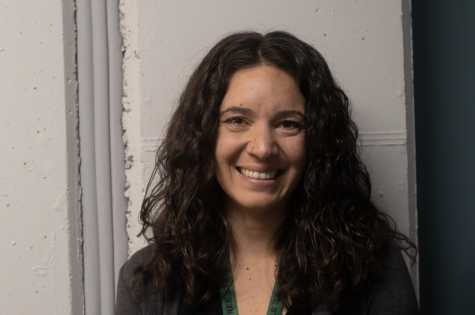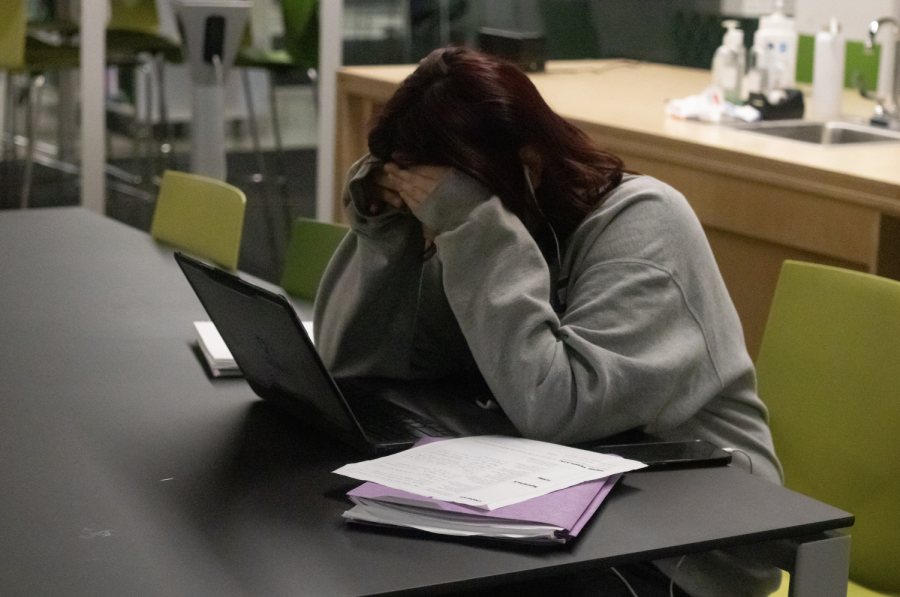FEATURE: Seasonal Depression Affects Students
During the winter months, students face challenges with seasonal depression and finals.
Head buried in their hands, junior Brynn Cordova stresses over assignments. With finals fast approaching, Cordova has begun to set aside time to study. “My hardest final is math, but I’m very confident I will pass it because of the hours I will dedicate to studying,” Cordova said.
December 9, 2022
As the days get shorter, the number of students suffering from seasonal depression increases. Unlike other forms of depression, seasonal depression only occurs for a limited amount of time each year, typically during the winter months when there are less hours of sunlight. Seasonal depression can affect a student’s performance in school and in their extracurricular activities.
“Generally, it comes up most going into the winter and the fall because [of] time changes, and so it gets dark early,” said social worker Katie Coldham. “We can’t do as much outside [because of] the weather. It’s cold and people tend to be inside and isolate themselves.”
According to Coldham, symptoms of seasonal depression typically include; isolation, withdraw from activities, less involvement in social activities, and feelings of suicidal ideation severe cases. For students wondering if they have seasonal depression, Coldham recommends considering the circumstances that symptoms occur. “If students are feeling any type of symptom, you can reflect, if possible, and say ‘oh, you know what, I kind of felt like this last year, and it started in maybe October and…by May, I felt better’. That’s probably going to be seasonal depression,” Coldham said.

Students can fall behind on their school work and in their grades because they lack the motivation to do simple tasks such as waking up in the morning or taking care of themselves, let alone the struggle of school work. The winter months where seasonal depression is the most active happens to line up with midterm finals. Because of this, important finals can be overlooked.
“I’ve not been doing well on tests because I just don’t have motivation to study or motivation to get out of bed and do other things,” freshman Laura Turner said.
While seasonal depression can be bleak and difficult, for some opening up and talking to someone they trust or a therapist can be helpful. For people who struggle with mental health, opening up about it can be tough but sophomore Zoe Milburn notes that it has helped her.
“Talk to someone that you feel comfortable talking to. If they think it’s something more, maybe go get a therapist or go find more help,” Milburn said.









